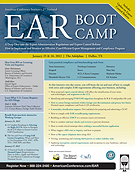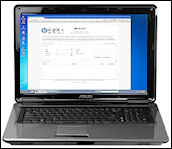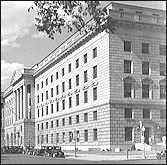 Here are a few things worthy of your attention.
Here are a few things worthy of your attention.
- The ACI’s Second National EAR Boot Camp is coming up and will be held in Dallas on January 25 and 26, 2012. Export Law Blog readers who mention discount code EB200 will get a $200 discount on their registration fees. Download the promotional brochure here. There are some great speakers scheduled but you may want to go in particular to hear Gene Christensen from BIS. Gene knows as much about the EAR as anyone in BIS and is an all-round nice guy who shares his time freely to help out exporters dealing with his agency.
- Speaking of nice guys, John R. Liebman, Roszel C. Thomsen II, James E. Bartlett III have just released United States Export Controls, Sixth Edition. John sent me an email describing the changes in the latest edition
The new edition is noticeably slimmer than its predecessors, primarily due to the consolidation of two chapters covering Commerce regulations into one and the deletion of several tables and appendices that were no longer useful (if they ever were). New chapters include the Foreign Corrupt Practices Act and its intersection with export controls. In addition, Roz, Jim and I are working on additional chapters that could not be completed before the publisher’s deadline, and those should be available in 2012, along with regular quarterly updates. Among them will be discussions of export control aspects of cloud computing, the Foreign Trade Regulations, and the ongoing efforts to overhaul the current patchwork of export regulations. Finally, this edition will be the first that is available electronically as well as in hard copy.
There aren’t any special discounts for Export Law Blog readers, but the book is worth every penny even at full price.
- If you have downloaded the new Google Currents app onto your iPhone, iPad, or Android device, there is a specially formatted edition of Export Law Blog that you can subscribe to in that service. To subscribe, click this link from the browser on your mobile device. Or click the plus icon to add more news sources and search for “Export Law Blog.” (You probably could have figured that out on your own!)

 Posted by
Posted by  Category:
Category: 

 The Office of Foreign Assets Control (“OFAC”) has just debuted a new web page which features a facility allowing users to search OFAC’s Specially Designated Nationals and Blocked Persons list. Go to that new page by clicking
The Office of Foreign Assets Control (“OFAC”) has just debuted a new web page which features a facility allowing users to search OFAC’s Specially Designated Nationals and Blocked Persons list. Go to that new page by clicking  Although I am not a mathematician, I have recently discovered (with the help of a regular reader) some new imaginary numbers other than those well known imaginary numbers that are the square roots of negative numbers. The new imaginary number can be found on the
Although I am not a mathematician, I have recently discovered (with the help of a regular reader) some new imaginary numbers other than those well known imaginary numbers that are the square roots of negative numbers. The new imaginary number can be found on the  Oh, the things you’ll learn when you read the
Oh, the things you’ll learn when you read the  This
This 

